At Life Ed Queensland, we’re dedicated to supporting and enhancing the vital health messages taught at home and in the classroom. Our primary school modules align with the Australian Curriculum for Health and Physical Education, helping teachers achieve key learning outcomes while complementing classroom lessons.
Each module is designed to deliver essential knowledge and skills in an engaging, interactive, and age-appropriate way.
Our programs focus on:
Join us in empowering every Queensland child with the skills they need to be ready for the world.
When you book the Life Ed Qld program for your school, you’ll gain year-round access to our online learning platform, the Life Ed Hub, designed to complement the lessons delivered by our educators.
The Hub offers a comprehensive suite of interactive lessons aligned with the Australian Curriculum, pre- and post-visit resources, practical tips for parents and teachers, and exclusive podcasts featuring insights from leading experts.

Harold and his friends want to look their best for photo day at school, but discover that things don’t always go to plan. This module focuses on things children can do to keep themselves healthy including:
This module focuses on students’ ability to recognise the importance of taking care of their bodies and supports them to manage unsafe behaviours at home, school and in the community.
Knowledge gained from this module includes:
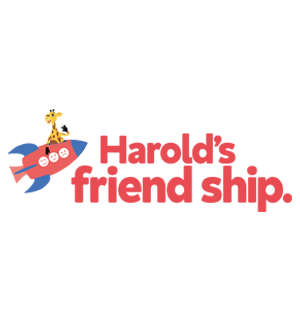
After building a model spaceship at school, Harold and his friends Boots and Red, venture into an imaginary world in outer space. As the adventure unfolds children explore:
In this module, students will learn to recognise the importance of relationships and will gain skills to seek help in a variety of situations and will also practice strategies to manage their feelings and emotions.
Outcomes include:
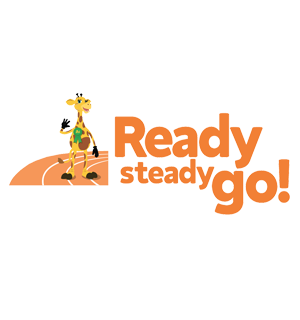
Harold and his friends are ready for their big race at the school athletics carnival, or are they? When one member of their relay team doesn’t show up, what will they do? This fun, engaging narrative provides opportunities to discover:
This module examines the many dimensions of health including feelings and emotions, safe and unsafe situations and behaviours that promote nutrition and wellbeing.
Knowledge gains include:

Harold and his friends have gone camping, but when someone gets injured on a hiking expedition, how will they look after each other and make it back to camp? This module helps children to problem solve and focuses on:
This module educates children about positive relationships, how to seek help, nutrition and how to protect themselves in unsafe environments.
Key focus areas are:
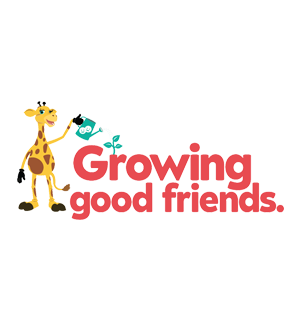 Harold battles to figure out what to give his grandma for her birthday, until his friends Boots and Red, step in and offer some good ideas. This animated story takes us to familiar surroundings where students can:
Harold battles to figure out what to give his grandma for her birthday, until his friends Boots and Red, step in and offer some good ideas. This animated story takes us to familiar surroundings where students can:
This module highlights the role that positive relationships plays in their health and wellbeing.
Learning outcomes include:
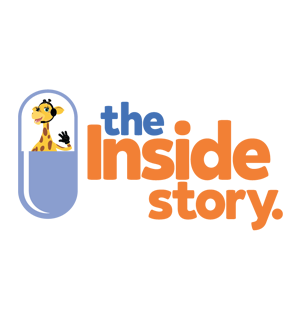
The Inside Story, set in a Kid’s TV News program, sees a team of young innovative scientists that shrink Harold and place him inside a tiny capsule. The class will be travelling through the body of, Max Questions, and get the ‘inside story’ from Harold himself.
They learn the functions of various body parts and the actions required to keep these systems working well as well as:
Focusing on how positive lifestyle choices help to maintain internal body systems, students identify and practice strategies to resist pressure from others to maintain personal safety.
Learning outcomes include:

Friends and Feelings is presented in engaging comic book-style videos, the lesson revolves around a conflict between old friends, Boots and Red. When Red runs off, upset, Boots starts to feel sick in her stomach. With help from their friendship group, they sort things out.
Learning includes:
This module focuses on friendship and how having a sense of belonging influences health and wellbeing.
Learning outcomes include:
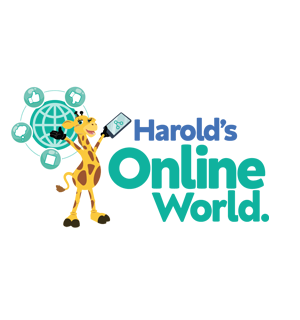 Our new module, “Harold’s Online World” aims to equip students in Years 1 and 2 with the knowledge and skills to navigate the online world safely, respectfully and responsibly. This module is evidence-informed, strengths-based and aligns with the Australian Curriculum, eSafety Commissioner’s Best Practice Framework for Online Safety Education, and World Health Organisation’s (WHO) recommendations on digital health for children and adolescents.
Our new module, “Harold’s Online World” aims to equip students in Years 1 and 2 with the knowledge and skills to navigate the online world safely, respectfully and responsibly. This module is evidence-informed, strengths-based and aligns with the Australian Curriculum, eSafety Commissioner’s Best Practice Framework for Online Safety Education, and World Health Organisation’s (WHO) recommendations on digital health for children and adolescents.
The module aims to:
Harold’s Online World will be available in schools across Queensland in 2025, but bookings are open now.
Book This Module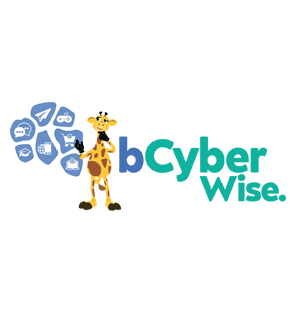
This module focuses on cybersafety, cyber ethics and building positive relationships with friends online and offline. The students explore a range of issues such as password security, risks of sharing personal information, how to communicate respectfully both online and offline, and strategies to handle bullying including cyberbullying as well as:
bCyberwise teaches strategies and skills to combat cyberbullying. In this module, students learn that safe, responsible and respectful behaviour is necessary when interacting with others online as well as face-to-face.
Learning outcomes include:

Australia has one of the lowest rates of smoking in the world, but vaping has increased over the last three years. Life Ed Qld recognises that we have a part to play in reducing the demand for e-cigarettes by the next generation. That’s why we’ve partnered with young people to create “Take a Breath”.
Take a Breath tackles the tough questions and misconceptions around vaping, using conversation driven by Australian students. It features Years 5-6 students who have genuine questions about smoking and vaping, alongside high school students who provide answers. The teenagers involved highlight the facts that surround the issue, while also using their unique voice and perspective to engage with their peers.
In the program Year 5- 6 students will investigate the issues around vaping and smoking and are encouraged to stop and “take a breath”, ask questions, seek answers and exercise critical thinking skills before making a decision.
Knowledge gained from this module includes:
Like all Life Ed Qld programs, Take a Breath takes a holistic approach and consists of a:

This engaging and practical module empowers upper primary students to make confident, healthy, and safe decisions in everyday life. Through interactive activities and real-life scenarios, students will learn how to recognise peer pressure, take responsibility for their choices, and seek help when needed—both online and offline.
Note: Alcohol and nicotine education can be included within the session.
Book This Module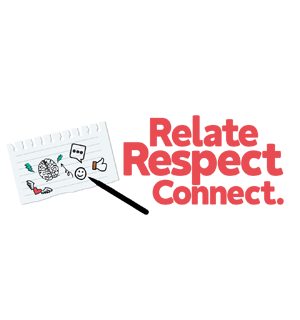 In this updated module, students investigate the importance of respectful relationships for wellbeing, including face to face and online connections.
In this updated module, students investigate the importance of respectful relationships for wellbeing, including face to face and online connections.
Students explore how the physical and personal changes at this stage of life impact their behaviour, emotions and relationships. They also learn to recognise, react and report disrespectful, unsafe and potentially predatory behaviour online. They key areas covered include:
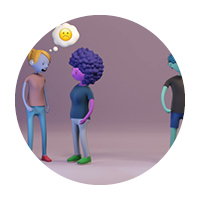 Talk About It by Life Ed Qld is designed to help support students explore the concept of identity, develop safe and respectful relationships, and understand and manage the physical and emotional changes that occur during puberty.
Talk About It by Life Ed Qld is designed to help support students explore the concept of identity, develop safe and respectful relationships, and understand and manage the physical and emotional changes that occur during puberty.
Developed with the support of Queensland Health, Talk About It supports schools to deliver curriculum aligned education in the areas of relationships, identity and puberty.
Explore Talk About It via the link below.
Explore Talk About It